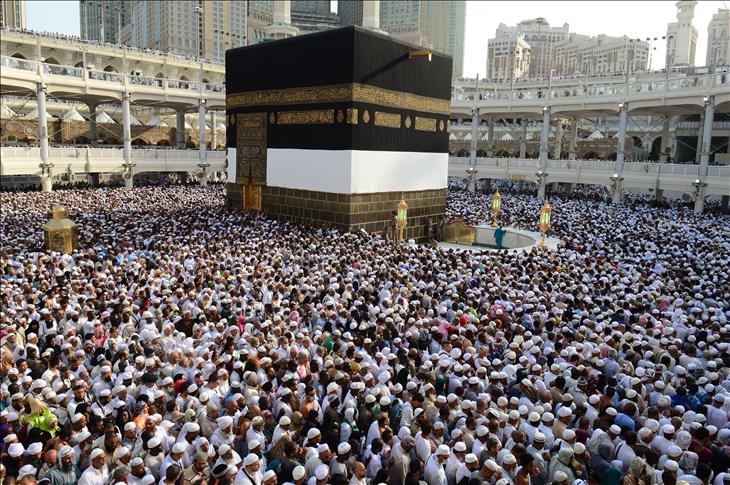
NEW YORK
Islam will be the world's largest religion after 2070 if current demographic trends continue, projections released Thursday by a leading research group show.
Between 2010 and 2050, Muslims are projected to increase by 73 percent while the number of Christians is projected to grow by 35 percent, at about the same rate as the global population, Pew Research Center said.
As of 2010, Christianity was the world’s largest religion with an estimated 2.2 billion adherents, 31 percent of all 6.9 billion people on Earth, according to Pew demographers. Islam was second, with about 1.6 billion followers, or 23 percent of the world population.
According to the projections, by 2050 there will be near parity between Muslims and Christians, possibly ending two millennia of Christian dominance in the world.
Some scholars say Christians always have been more numerous than Muslims around the world, while others say the number of Muslims may have exceeded the number of Christians during the Islamic golden age between 11th and 17th centuries.
Globally, Muslims have the highest fertility rate, an average of 3.1 children per woman, the Pew report said. Christians are second, at 2.7 children per woman.
The projections showed that, if current demographic trends continued, the Muslim share of the world’s population would exceed the Christian share after the year 2070. By the year 2100, about 1 percentage point more of the world’s population would be Muslim than Christian.
All of the world’s major religious groups except Buddhists are poised for some growth in absolute numbers in the coming decades, Pew researchers said.
They said low fertility rates and aging populations in countries such as China, Thailand and Japan would keep the global Buddhist population stable.
The projections also revealed that Christians would drop below 50% of the population in several countries including Australia, France, the Netherlands and the U.K.
As of 2050, the largest religious group in France, New Zealand and the Netherlands is expected to be the "religiously unaffiliated," which include atheists, agnostics and others who do not affiliate with any religion, although this group is projected to shrink as a percentage of the global population, the report said.
In Europe, the Muslim share of the population is expected to increase from 5.9 percent in 2010 to 10.2 percent in 2050 due to migration and other demographic factors, the projections showed.
Hindus are projected to grow by 34 percent, from a little over 1 billion to nearly 1.4 billion, by 2050. Jews are estimated to grow 16 percent, from a little less than 14 million in 2010 to 16.1 million globally in 2050.
In 2050, the world’s total population is expected to rise to 9.3 billion, a 35 percent increase from 2010's 6.9 billion, according to Pew demographers.
Anadolu Agency website contains only a portion of the news stories offered to subscribers in the AA News Broadcasting System (HAS), and in summarized form. Please contact us for subscription options.

